Import tariff quota for salt and poultry eggs in 2024
The Ministry of Industry and Trade issued Circular No. 37/2023/TT-BCT dated December 22, 2023 regulating import tariff quotas for salt and poultry eggs in 2024.
The Circular stipulates that the import tariff quota for poultry eggs (commercial eggs without embryos) in 2024, including chicken eggs; duck eggs, goose eggs and other types, is 68,670 dozen.
The quota for salt - commodity code 2501 (including table salt and denatured salt and pure sodium chloride, whether or not in aqueous solution or containing anti-caking agents or free-flowing agents; sea water) is 88,000 tonnes.
In addition, the Circular also stipulates the method of allocating import tariff quotas for salt and poultry eggs in 2024. Accordingly, the import tariff quotas for salt and poultry eggs in 2024 will be implemented according to the allocation method prescribed in Decree No. 69/2018/ND-CP dated May 15, 2018 of the Government detailing a number of articles of the Law on Foreign Trade Management and Circular No. 12/2018/TT-BCT dated June 15, 2018 of the Minister of Industry and Trade detailing a number of articles of the Law on Foreign Trade Management and Decree No. 69/2018/ND-CP dated May 15, 2018 of the Government detailing a number of articles of the Law on Foreign Trade Management.
Import tariff quotas for salt are allocated to traders who directly use it as raw materials for the production of medicines, medical products and chemicals.
Import tariff quotas for poultry eggs are allocated to traders with import needs.
The Ministry of Industry and Trade discussed with the Ministry of Agriculture and Rural Development to determine the time to allocate import tariff quotas for salt and poultry eggs in 2024.
The Circular takes effect from February 6, 2024 to December 31, 2024.
Amending regulations on tobacco business
The Ministry of Industry and Trade issued Circular 43/2023/TT-BCT dated December 28, 2023 amending and supplementing a number of articles of Circular No. 57/2018/TT-BCT stipulating a number of articles of Decrees related to tobacco business.
Circular 43/2023/TT-BCT amends Clause 1 and Clause 9, Article 13 on forms and reporting regimes for tobacco trading enterprises:
Every 6 months, tobacco product manufacturing and tobacco import enterprises must send reports to the Ministry of Industry and Trade on tobacco product manufacturing and tobacco product import activities (before January 10 every year for annual reports and before July 10 every year for first 6-month reports).
Every 6 months, tobacco product suppliers must send statistical reports on output and types of tobacco products traded (according to the distribution, wholesale and retail systems) of their units to the Domestic Market Department - Ministry of Industry and Trade and the Department of Industry and Trade where the enterprise has its headquarters (before January 10 every year for the full-year report and before July 10 every year for the first 6-month report).
This Circular takes effect from February 12, 2024.
Ministry of Finance guides the implementation of the 2024 state budget estimate
The Ministry of Finance issued Circular No. 76/2023/TT-BTC dated December 29, 2023 regulating the organization of implementation of the 2024 state budget estimate.
According to the Circular, the decentralization of revenue sources and expenditure tasks between the central budget and local budgets is implemented according to the provisions of the State Budget Law and documents guiding the implementation of the State Budget Law.
Continue to regulate the central budget to enjoy 100% of revenue from e-commerce business activities, digital platform-based business, cross-border services and other services provided by foreign suppliers who register for tax, declare tax and pay tax directly at the General Department of Taxation's electronic information portal.
Implement the division of revenue from granting water resource exploitation rights and environmental protection tax on gasoline and oil products between the central budget and local budgets according to the provisions of Point a, Clause 3, Article 3 of Decision No. 1600/QD-TTg dated December 10, 2023 of the Prime Minister.
The revenue from road use fees collected through automobile vehicles (after deducting collection costs) is 100% paid to the central budget and 65% of the revenue is divided to the central budget and the central budget is allocated with a target supplement to the local budget, equivalent to 35% of the revenue, to carry out road management and maintenance work.
Revenue from land use fees according to the provisions of the law on land, revenue from equitization and divestment of state capital in state-owned enterprises managed by localities shall be used for development investment expenditures subject to investment of the local budget.
Revenue from lottery activities in the local budget estimate shall be used according to the provisions of Point b, Clause 3, Article 3 of Decision No. 1600/QD-TTg dated December 10, 2023 of the Prime Minister.
The Circular clearly states that in 2024, the percentage (%) of revenue sharing between the central budget and local budgets will be stabilized; for the additional budget balance (if any), the central budget will supplement an additional 2% compared to the additional budget balance in 2023 decided by the National Assembly; supplement the local budget to implement the basic salary of 1.8 million VND/month in Decision No. 1600/QD-TTg, No. 1602/QD-TTG dated December 10, 2023 of the Prime Minister.
The decentralization of revenue sources and expenditure tasks between local government budgets at all levels and the percentage (%) of revenue distribution between local budget levels shall be implemented in accordance with the resolution of the Provincial People's Council decided for the budget year during the stable period. For 2024, based on the balancing capacity of the higher-level budget, the Provincial People's Committee shall submit to the People's Council at the same level a decision to increase the additional budget balance for the lower-level budget compared to 2023. In special cases where revenue arises from a new project coming into operation, causing a large increase in local budget revenue, the Provincial People's Committee shall submit to the People's Council at the same level a decision in accordance with the provisions of Clause 7, Article 9 of the State Budget Law.
At the same time, the provincial budget balances the budget for the lower-level budget to implement salary reform according to the resolution of the provincial People's Council and the decision of the People's Committee at the same level.
This Circular takes effect from February 12, 2024 and applies to the 2024 budget year.
Principles for determining slot coordination parameters at airports
The Ministry of Transport issued a Circular amending and supplementing a number of articles of Circular No. 29/2021/TT-BGTVT dated November 30, 2021 of the Minister of Transport detailing the management and operation of airports. The Circular clearly defines the principles for determining slot coordination parameters.
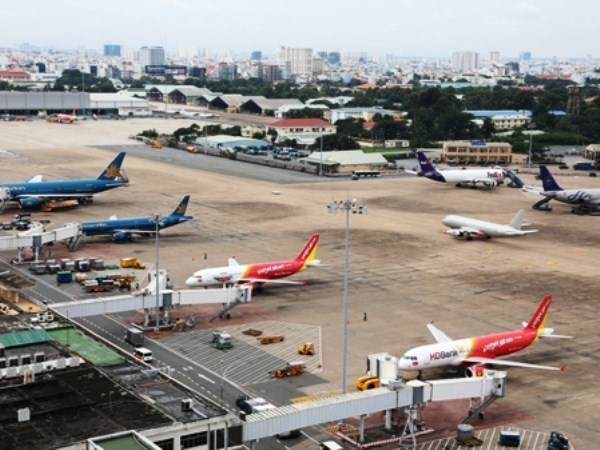
Accordingly, airport operators are responsible for developing capacity limits for terminals and aircraft parking lots.
Enterprises providing flight operations assurance services are responsible for establishing capacity limits for runway exploitation, landing and flight operations services.
Based on the capacity limit index specified as mentioned above and the opinion of the Slot Council, the Civil Aviation Authority of Vietnam decides on slot coordination parameters and changes to slot coordination parameters.
The slot coordination parameters at airports are determined according to the following principles: The slot coordination parameters related to terminals and aircraft parking lots do not exceed the prescribed terminal and aircraft parking lot capacity limit index; the slot coordination parameters related to runways and air traffic services do not exceed 80% of the prescribed limit index for fully coordinated airports. The slot coordination parameters of airports that are not fully coordinated do not exceed the prescribed runway and air traffic services capacity limit index.
The Circular clearly states that the Civil Aviation Authority of Vietnam will consider and decide to increase the parameters for coordinating runway slots, landing slots and flight operations services at fully coordinated airports not exceeding the capacity limit index prescribed during the period: Lunar New Year from December 15 to January 15 of the Lunar calendar; Summer peak from May 15 to August 15 of the Gregorian calendar; holiday periods according to regulations and cultural, economic, political events and other peak periods as required by the Government and the Ministry of Transport.
According to the Circular, the historical slot of a flight schedule season is the slot series that is used correctly with a rate of at least 80% of each international slot series or a rate of at least 70% of each domestic slot series as prescribed.
Slot chains considered as the basis for calculating historical slots include: Slot chains last confirmed up to the date of historical slot calculation basis; domestic slot chains confirmed to change before September 15 for winter flight schedules and before February 15 for summer flight schedules; domestic slot chains changed from international slot chains and vice versa confirmed before September 15 for winter flight schedules and before February 15 for summer flight schedules; new proposed slot chains (code N, B) confirmed for the first time, new proposed slot chains (code N) implemented simultaneously with the cancellation of the slot chain (code D) after the date of historical slot calculation basis; slot chains specified in Point b, Point c of this Clause must be proposed no later than February 10 for summer flight schedules and September 10 for winter flight schedules...
The Circular takes effect from February 15, 2024.
Passenger fares through dedicated ports
Circular No. 39/2023/TT-BGTVT dated December 25, 2023 of the Ministry of Transport promulgating the price list for pilotage services, services using bridges, wharves, mooring buoys, container loading and unloading services and towing services at Vietnamese seaports.
Specifically, for passengers on international tourist ships operating at seaports in Vietnam through bridges and dedicated passenger wharves, for each entry and exit from the port, the price will be from 2.5 - 5 USD/person.
This is a new regulation that has been revised and supplemented to suit practical needs.
Vietnam Maritime Administration said that currently, specialized ports serving passenger ships such as Ha Long International Passenger Port (Quang Ninh) have been invested and put into operation since 2019 but there is no price framework yet.
Adding a price frame for passenger ships at specialized ports is necessary to facilitate businesses in applying prices to international tourists coming to Vietnam, especially during the period when the tourism market recovers after the Covid-19 pandemic.
For international tourist ships operating at seaports in Vietnam through bridges, wharves, and mooring buoys at seaports that exploit cargo handling services combined with receiving tourist ships, the price is 2.5 - 3.5 USD/person for each entry and exit from the seaport.
The same price applies to boats anchored at the anchorage area that are allowed to use other means of water transport to pick up and drop off tourists to visit the mainland or islands and vice versa.
The price frame for passenger services through bridges, wharves, and mooring buoys does not apply to children under 12 years old.
The Circular takes effect from February 15, 2024.
Amending regulations on the list of types and quality standards of exported minerals
The Ministry of Industry and Trade issued Circular 45/2023/TT-BCT dated December 29, 2023 amending and supplementing Circular No. 23/2021/TT-BCT regulating the list of types and quality standards of exported minerals managed by the Ministry of Industry and Trade.
Circular amending and supplementing Article 4 on the list of types and quality standards of exported minerals.
Accordingly, exported minerals are minerals of legal origin, have been processed, are listed in the List of types and meet the following quality standards:
For exported minerals of domestic origin: List of types and corresponding quality standards in Appendix 1 of this Circular, including: Titanium ore; Bismuth ore concentrate; Nickel ore concentrate; Total rare earth (oxide, hydroxide, salt); Fluorite ore; Barite powder; White marble; Graphite ore; Mica powder (muscovite mica); Diatomite ore concentrate (silica fossil powder).
For exported minerals of imported origin:
In case of processing goods for foreign traders: The type and quality standards of processed products are implemented according to the processing contract signed with the foreign trader. The processing contract complies with the provisions of Article 39 of Decree No. 69/2018/ND-CP dated May 15, 2018 of the Government detailing a number of Articles of the Law on Foreign Trade Management.
In case of processed minerals from imported sources other than the above cases: List of types and corresponding mineral quality standards in Appendix 2 of this Circular, including titanium ores: Ilmenite concentrate, Zircon powder, Zircon concentrate, Rutile concentrate, Monazite concentrate, Mixed tailings, Zircon tailings and Titanium slag of all kinds.
Mineral exporters are selected to organize conformity assessment according to the provisions of Decree 107/2016/ND-CP dated July 1, 2016 of the Government stipulating the conditions for business of conformity assessment services and Decree 154/2018/ND-CP dated November 9, 2018 of the Government on amending, supplementing and abolishing a number of regulations on investment and business conditions in the field of state management of the Ministry of Science and Technology and a number of regulations on specialized inspection to assess the types and quality of exported minerals.
The Circular takes effect from February 15, 2024.
Amending regulations on determining construction project prices
The Ministry of Construction issued Circular 14/2023/TT-BXD dated December 29, 2023 amending and supplementing a number of articles of Circular No. 11/2021/TT-BXD dated August 31, 2021 guiding a number of contents on determining and managing construction investment costs.
In which, Circular 14/2023/TT-BXD amends and supplements Article 9 on determining construction prices.
Accordingly, the construction price includes the detailed construction unit price and the total construction price. The construction price is determined according to the provisions in Clause 2 and Clause 3, Article 24 of Decree No. 10/2021/ND-CP and detailed instructions in Appendix IV of this Circular.
Investors use the construction price system prescribed in Clauses 1 and 2, Article 26 of Decree No. 10/2021/ND-CP and the provisions in Clauses 1 and 2, Article 8 of this Circular as the basis for determining and managing construction investment costs.
The Circular takes effect from February 15, 2024.
Amending regulations on exemption period for applying trade defense measures
The Ministry of Industry and Trade issued Circular 42/2023/TT-BCT dated December 28, 2023 amending and supplementing a number of articles of Circular 37/2019/TT-BCT detailing a number of contents on trade defense measures.
Circular 42/2023/TT-BCT amends and supplements Article 11 on the exemption period for applying trade defense measures.
Accordingly, the total exemption period for trade defense measures shall not exceed the effective period of the corresponding trade defense measures. The Ministry of Industry and Trade shall annually review the exemption period for applications for exemption from trade defense measures in one of the cases specified in Clause 2, Clause 3 and Clause 4 of this Article.
For dossiers requesting exemption from application of trade defense measures according to Point a, Clause 1, Article 16 of this Circular, the exemption period from application of trade defense measures shall not exceed the application period of such temporary trade defense measures.
For dossiers requesting exemption from applying trade defense measures according to Point b, Clause 1, Article 16 of this Circular, the exemption period for these dossiers shall not exceed 18 months from the effective date of the decision to apply trade defense measures until December 31 of that year or until December 31 of the following year.
For dossiers requesting exemption from applying trade defense measures according to Point c, Clause 1, Article 16 of this Circular, the exemption period for these dossiers shall not exceed 18 months from January 1 of the year of receiving the exemption request dossier or from the effective date of the exemption decision.
For additional exemption requests received by the Investigation Agency, the additional exemption period is calculated according to the exemption period of the initial exemption decision.
In addition, the Circular also amends and supplements Clause 4, Article 13 on criteria for consideration and forms of exemption from applying trade defense measures.
Accordingly, the Ministry of Industry and Trade considers not exempting goods subject to trade defense measures in the following cases:
The application of trade remedy exemptions to such goods is likely to lead to fraudulent acts aimed at evading the application of trade remedy measures;
Organizations and individuals that have been exempted from applying trade defense measures to those goods are concluded to not cooperate or not fully cooperate as requested by the post-exemption inspection and examination team of the investigating agency.
The Circular takes effect from February 15, 2024.
MH (t/h)
Source








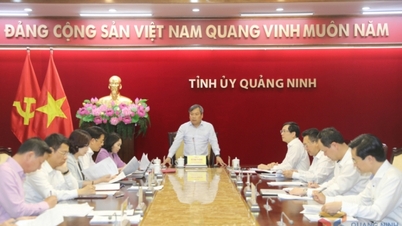

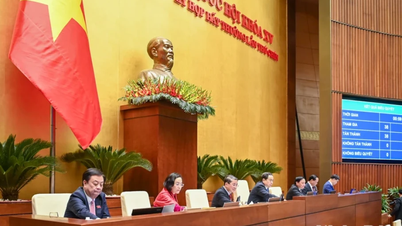
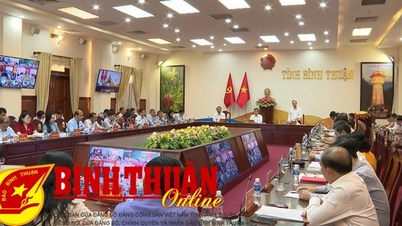
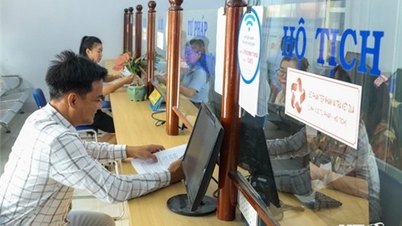



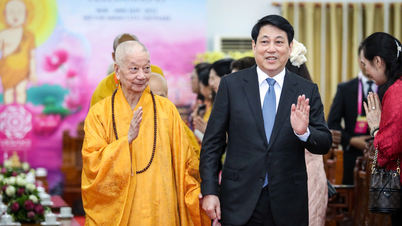


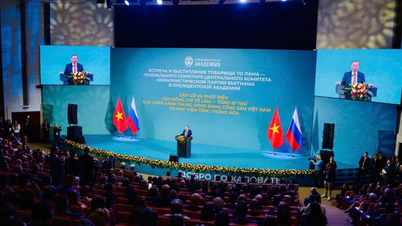











![[Photo] General Secretary To Lam arrives in Minsk, begins state visit to Belarus](https://vphoto.vietnam.vn/thumb/1200x675/vietnam/resource/IMAGE/2025/5/11/76602f587468437f8b5b7104495f444d)
![[Photo] General Secretary To Lam concludes visit to Russia, departs for Belarus](https://vphoto.vietnam.vn/thumb/1200x675/vietnam/resource/IMAGE/2025/5/11/0acf1081a95e4b1d9886c67fdafd95ed)
![[Photo] General Secretary To Lam meets and expresses gratitude to Vietnam's Belarusian friends](https://vphoto.vietnam.vn/thumb/1200x675/vietnam/resource/IMAGE/2025/5/11/c515ee2054c54a87aa8a7cb520f2fa6e)











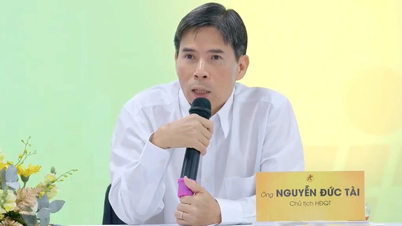













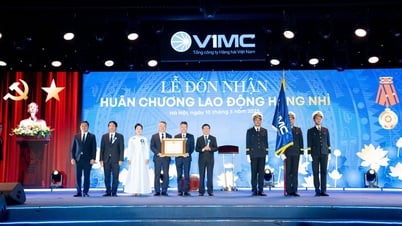


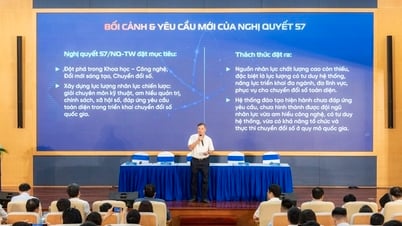
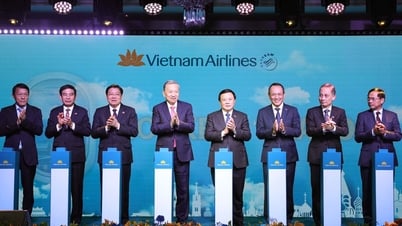


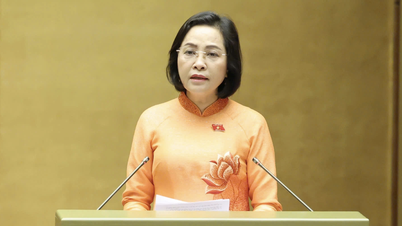


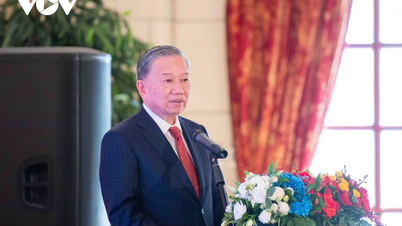

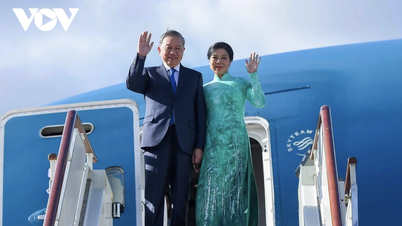
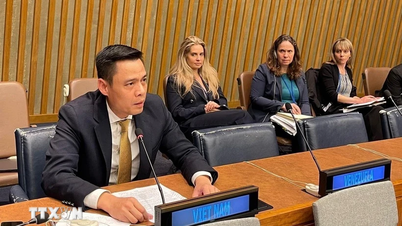

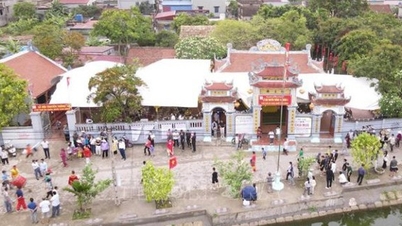


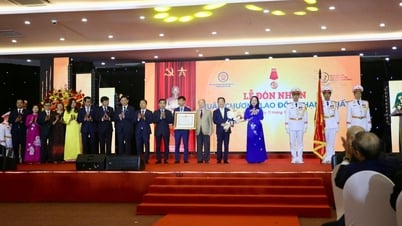




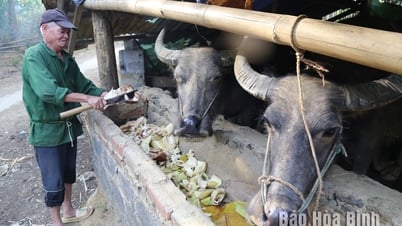






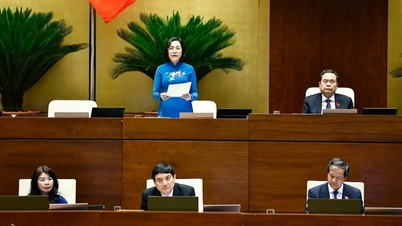

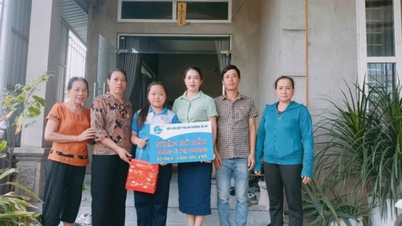









Comment (0)